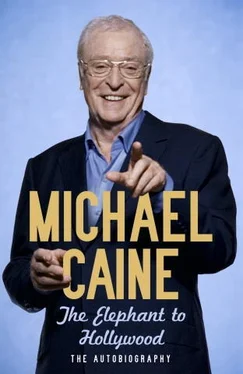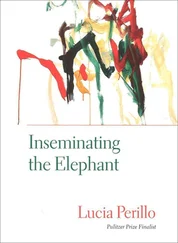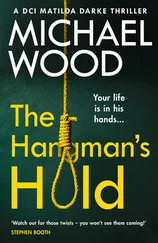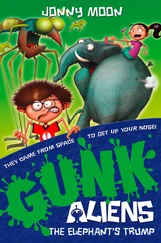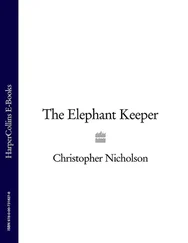Michael Caine - The Elephant to Hollywood
Здесь есть возможность читать онлайн «Michael Caine - The Elephant to Hollywood» весь текст электронной книги совершенно бесплатно (целиком полную версию без сокращений). В некоторых случаях можно слушать аудио, скачать через торрент в формате fb2 и присутствует краткое содержание. Город: London, Год выпуска: 2010, ISBN: 2010, Издательство: Hodder, Жанр: Биографии и Мемуары, на английском языке. Описание произведения, (предисловие) а так же отзывы посетителей доступны на портале библиотеки ЛибКат.
- Название:The Elephant to Hollywood
- Автор:
- Издательство:Hodder
- Жанр:
- Год:2010
- Город:London
- ISBN:978-1444700015
- Рейтинг книги:4 / 5. Голосов: 1
-
Избранное:Добавить в избранное
- Отзывы:
-
Ваша оценка:
- 80
- 1
- 2
- 3
- 4
- 5
The Elephant to Hollywood: краткое содержание, описание и аннотация
Предлагаем к чтению аннотацию, описание, краткое содержание или предисловие (зависит от того, что написал сам автор книги «The Elephant to Hollywood»). Если вы не нашли необходимую информацию о книге — напишите в комментариях, мы постараемся отыскать её.
The Elephant to Hollywood — читать онлайн бесплатно полную книгу (весь текст) целиком
Ниже представлен текст книги, разбитый по страницам. Система сохранения места последней прочитанной страницы, позволяет с удобством читать онлайн бесплатно книгу «The Elephant to Hollywood», без необходимости каждый раз заново искать на чём Вы остановились. Поставьте закладку, и сможете в любой момент перейти на страницу, на которой закончили чтение.
Интервал:
Закладка:
It seems to me that the people who send you to war are too old to go themselves – or know better. The sergeants who trained us told stories of incredible bravery during the Second World War but by the time we’d actually got to Korea they had all mysteriously disappeared and suddenly it was some of us young guys who were made sergeants. Not me – I was lucky to make private. But then, I think that going to war ages you. When we were marching out of the line, having been there for a year, we were nearly twenty. On the way back we passed the regiment that was taking over from us. They were nineteen-year-olds, as we had been when we went in and I looked at them, and I looked at us, and we looked ten years older than they did. They looked like young boys; we looked like young men.
The closest I got to death – and the incident that still haunts my dreams from time to time – was a night-time observation patrol in no-man’s-land. Three of us – my platoon commander Robert Mills (who later became an actor, too), a wireless operator and me – were sent down the valley, faces blackened with mud and covered in mosquito repellent, to the very edge of the Chinese lines. Madness. It could have got even madder. As we squatted in a rice paddy, insects eating us alive, Bobbie Mills, who was the son of a general, had an idea. ‘I know,’ he said, ‘we’ll grab ourselves a Chinese prisoner! I’ll give you a fiver each.’ I stared at him. He’d spotted my mercenary streak, but he had seriously misjudged my interest in a futile gesture. ‘Are you off your fucking head?’ I hissed. He looked hurt. ‘Does that mean you won’t come with me?’ ‘Too fucking right,’ the wireless operator and I said together. ‘In that case,’ he said as if he was depriving us of a great treat, ‘we’ll just have to go back.’ We were halfway up the hill again, moving cautiously, when we suddenly caught the whiff of garlic – the Chinese ate garlic like chewing gum – and realised we were being followed. Just in time, we threw ourselves on to the ground as a troop of Chinese soldiers emerged from the long grass and began searching for us. I lay there, absolutely terrified, my hand on the trigger of my gun, with the enemy circling so close we could hear them talking. I was conscious of a growing fury – I was going to die before I’d even had a chance to live, before I’d had a chance to do all the things I wanted to do, before I’d had a chance to realise even one of my dreams. I decided I had nothing further to lose; if I was going to die, then I was taking a lot of Chinese with me. I was not alone: the three of us were gripped with a new sense of purpose. We would not run back to our own lines, Bobbie Mills said, we would charge the enemy, all guns blazing, and take them by surprise. This time, we were all agreed. ‘I need a piss,’ said the wireless operator. We were all agreed on that, too, and knelt there in the undergrowth and all peed together. Then we got to our feet and hurled ourselves into the night. The Chinese began firing in all directions, but they had no idea where we were coming from and we just kept running towards the enemy lines until it felt safe to change direction and head back to our own. Somehow we got back in one piece – but it was a close-run thing.
I don’t wake up in the night in a sweat reliving this incident, but it does come back to me at moments of difficulty, particularly when someone is looking to attack me or do me down. And I just think – as I did on that Korean hillside – you cannot frighten me, or do anything to me, and if you try I’ll take as much or as many of you with me as I can, even if I lose in the process. If you leave me alone, I’m great – but just don’t start…
A Hill in Korea was nothing like the real thing, but no one seemed to be interested in that. George Baker, now better known as Inspector Wexford in the Ruth Rendell mysteries, was sent into battle wearing an officer’s hat and badges to mark him out as the star of the film. I pointed out that he’d have been marked out as a prime target by the snipers in a real war and wouldn’t have lasted ten seconds in a proper advance, but I was ignored. I was ignored, too, when I suggested that the troops should fan out during the advance to maximise their fire coverage. No, they would have to huddle up, I was told, because the camera lens wasn’t wide enough. I was about to venture the opinion that Korea actually looked more like Wales than Portugal, but held my tongue – after all, where would you rather film on location?
Although on the whole Portugal rekindled very few nightmares of Korea, I was faced with one constant reminder of my time on that terrible front line: garlic. The food in the hotel was swimming in oil and garlic, and night after night I would send back my meal until there wasn’t a trace of it left. This infuriated my fellow actor Robert Shaw and one night, after we’d all had a few too many bottles of wine, he’d had enough. ‘Eat your food, you fucking Cockney Philistine! You’ll never have eaten anything as good as this!’ he shouted. I had no idea what a Philistine was, but I understood he had just insulted my mum’s cooking and I leapt across the table and grabbed him by the shirtfront. ‘Who do you think you’re fucking talking to?’ I snarled. All hell broke loose as we lashed out at each other – wine was spilt, food was spilt, the waiters went flying – it was a proper, old-fashioned bar room brawl. Of course, now I know Robert was absolutely right, and I use olive oil and garlic in my cooking all the time – but now and again, off guard, I catch a slight whiff and I’m back there in that rice paddy. You never really forget.
Once home I paid my mother back, moved into a bedsitter and had enough money left over to get to Sheffield to see Dominique, who was now an enchanting one-year-old. Pat had gone back to acting and her parents were raising our daughter – and doing a superb job. Claire and Reg were very welcoming to me and I will always be grateful to them for all they did for Dominique. I felt relieved that they had stepped in to rescue us and promised to visit as often as I could. And on the train back to London I even allowed myself to relax and believe that my problems were over.
Of course, they weren’t. My agent, Jimmy Fraser, saw the finished film of A Hill in Korea and promptly dropped me. To be fair, he’d seemed a bit reluctant to take me on in the first place. ‘You’ve got something, Michael,’ he said when I first visited him in his grand offices on Regent Street. ‘For the life of me I can’t see what it is, and I haven’t a clue how to sell it, but I’ll take you on for a bit and see if it becomes a bit clearer.’ Well, things did seem to have become clearer. If I didn’t dye my fair eyelashes and eyebrows, he said, I’d never get anywhere. He wasn’t right about that, as it turned out, but he was right about my performance in A Hill in Korea . In the few scenes of mine that had survived the cutting room, I was terrible. Not that anyone much ever got to see it: with superb timing it was released the night we invaded Suez.
After Jimmy dumped me I found another agent, Josephine Burton, but the jobs didn’t exactly come thick and fast and I had to go back to living with Mum and Stanley. There was no film work on the horizon but I did get a part in one of the legendary Joan Littlewood’s shows with Theatre Workshop in the East End. All the other members of the company were committed Communists. I’d propped up capitalism in Korea; now I had a chance to see how the other side worked. I wasn’t very impressed: the wages were less than I’d been earning at Horsham, and the dialogue struck me as very unnatural. But then I didn’t have a clue who the proletariat were – and was very surprised to find out I was one of them.
Читать дальшеИнтервал:
Закладка:
Похожие книги на «The Elephant to Hollywood»
Представляем Вашему вниманию похожие книги на «The Elephant to Hollywood» списком для выбора. Мы отобрали схожую по названию и смыслу литературу в надежде предоставить читателям больше вариантов отыскать новые, интересные, ещё непрочитанные произведения.
Обсуждение, отзывы о книге «The Elephant to Hollywood» и просто собственные мнения читателей. Оставьте ваши комментарии, напишите, что Вы думаете о произведении, его смысле или главных героях. Укажите что конкретно понравилось, а что нет, и почему Вы так считаете.
